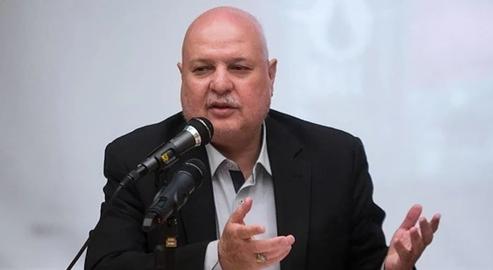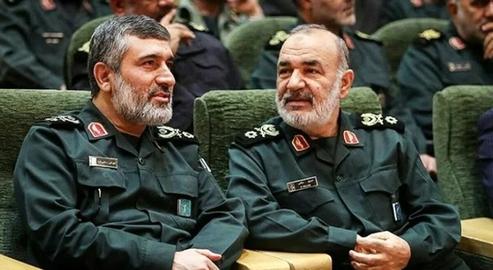In early August, Iranian state media backing Ebrahim Raisi published a set of articles about Turkey's experience in overcoming its economic crisis of the late 1990s and Kemal Derviş early 2000s, suggesting Iran could follow the country’s example. Notably, they implicitly compared Massoud Mirkazemi, Raisi's deputy and new head of the Planning and Budget Organization, with Kemal Derviş, former head of the Central Bank of Turkey: a comparison that was even more bizarre than Mirkazemi's appointment as head of the Planning and Budget Organization.
In a report dated August 5, entitled Derviş ’s Path of Perfection Before the 13th Government’s Economic Team, Fars News Agency wrote: “In Turkey the head of the Central Bank, Kemal Derviş , confronted the destructive cycle of wages and inflation with anticipation and courageous action, and was able to control inflation in Turkey.
“In Iran, too, Seyed Massoud Mirkazemi, new head of the Planning and Budget Organization, is resisting extraordinary hikes in teachers' salaries – unlike the previous head, who was party to salary increases above the norm for the Ministry of Education."
The comparison was comical for a number of reasons. For one thing, Kemal Derviş was an actual economist. Born in 1949 in Istanbul to a Turkish father and a German mother, he studied for his BA in Switzerland before obtaining a master’s degree from London School of Economics and finally an economics PhD from Princeton University. He was a faculty member at Ankara Middle East Technical University from 1973 to 1976, then a professor at Princeton University’s School of Economics from 1976 to 1978. As well as addressing the economic crisis in Turkey, he had a full 24 years’ with the World Bank, serving variously as manager of its Central European unit, vice president for Middle Eastern affairs, and vice president for the World Bank’s poverty alleviation project.
Massoud Mirkazemi has no economic background whatsoever. He was born in 1960 in the city of Ardestan, Isfahan province, and studied engineering there, receiving his bachelor’s degree in 1986 and his master’s in industrial engineering from Iran’s University of Science and Technology in 1989. Seven years later, he got his PhD in industrial engineering from Tarbiat Modares University in Tehran. He is a faculty member at the IRGC’s Imam Hossein University and at Imam Sadegh University and was previously the president of Shahed University. None of these three institutions are regarded as particularly prestigious in Iran.
Before joining the cabinet, he was a member of the IRGC for 25 years. He also worked as CEO of Etka, a chain store affiliated with the Ministry of Defense, for four years, and as advisor to the Minister of Defense for another four. In 2005, he joined Mahmoud Ahmadinejad’s cabinet in the now-defunct role of Minister of Commerce. During Ahmadinejad’s second term he was Minister of Oil for a year and a half before becoming an MP.
Mirkazemi’s record in government is a blotchy one. While he was Minister of Commerce, a sudden, drastic reduction to sugar tariffs caused unprecedented crisis in the industry. It was the first major blow to the Haft-Tappeh Sugar Refinery, whose disastrous privatization prompted more than half a decade of major protests and workers’ strikes.
Fars News Agency’s comparison to the Turkish banking tsar was also unfortunate because Kemal Derviş took responsibility when the Turkish economy was in a critical situation. The lira had depreciated by about 50 percent in the first six months of 2001 while a long recession in the 1990s had left the country on the brink of socio-political crisis. Turkish politicians called on Derviş to work to rectify the situation, which he did – on the condition that he be granted “independence in decision-making”, the freedom to appoint his own team, and support from the ruling political coalition in Turkey.
Iran in 2021 is in similarly dire financial straits to Turkey in 2000. But Mirkazemi’s position, prestige and ability to operate according to his own judgement is not comparable at all. His credibility does not even suffice for internal management of the Planning and Budget Organization, let alone resolving the economic crisis.
Kemal Derviş also had a plan. He implemented a three-tier solution to Turkey’s economic woes: firstly, marshalling the Turkish political system in such a year that in less than a year the legislature passed 20 laws, including the Central Bank Independence Law, the Trade Reform Law, the Government Debt Management Law and the Banking Law. Secondly, he rescued the national currency and slowed down the decline of lira against foreign currencies through limited, rational interventions and reassuring the market. Thirdly, he resolved the Turkish government’s debt problem by judiciously reducing public spending.
One measure that came as part of the latter was reducing the salaries of public sector employees, as Fars pointed out. But before doing so, Derviş negotiated personally with the unions, appeared on TV, and convinced people that these cuts would benefit them in the long run. He was right. His efforts were relatively well received by Turkish society at the time, and went on to play a major role in lowering inflation forecasts.
In Iran, Mirkazemi has no such plan – or if he has, he has yet to publish it. There does not appear to be any coordination between him and other cabinet members, MPs or governing bodies. What makes Mirkazemi look like Derviş to Fars News Agency is that he is opposed to extra payments to teachers' salaries. But it’s not clear how long he will be able to retain this position; the Iranian parliament’s Planning and Budget Committee has already objected to his proposal to curtail pay rises for teachers, while other government officials have spoken, also incoherently, about raising government workers’ salaries.
Perhaps most importantly, in terms of broad outlook, Kemal Derviş was in favor of an open economy for Turkey and free trade relations with all countries of the world, especially the United States. He began rebuilding the Turkish economy on the "How to Become a Small American Partner" model. Mirkazemi, meanwhile, is an ardent believer in Ayatollah Khamenei’s so-called “resistance economy” – the idea that Iran ought to somehow be self-sustaining – and has said he considers it an "innovative and irreplaceable term in the discourse of the Islamic Revolution, which is the result of the correct and timely observations of the wise leader". Even were this not the case, he would be beholden to Khamenei’s wishes as a member of Ebrahim Raisi’s government, which trumpets the ideology of opposition and enmity with the West.
Kemal Derviş also accepted the responsibility of saving the Turkish economy at a time when Turkey's political and social structures were still in place. Despite being in crisis, Turkey was also in good contact with other countries and international institutions such as the IMF and the World Bank, and was able to enlist their capacity in solving Turkey's problems. Mirkazemi takes the help of the Planning and Budget Organization at a time when societal structures in Iran are on the verge of collapse. Public dissatisfaction has reached such a level that mass protests are an annual occurrence, while Iran is both sanctioned and severely isolated at the regional and international levels. War and military confrontation are a perpetual threat. Save only for North Korea, Iran is the only country on the Financial Action Task Force blacklist suspected of both money laundering and terrorist financing. The country’s relations with the international community are now so strained, it cannot even access the IMF's $5 billion emergency loan. Both Fars and Mirkazemi ought to be fully aware of how severely the odds are stacked against him. But they might not be, because they are not economists.
Related coverage:
Iranian Currency Market Ignores Raisi's Claim of a Coming Reprieve
Record-Breaking Inflation Confronts Raisi's New Presidency
Iranians Enter a New Century Poorer and Less Hopeful for the Future
Women are the Victims of Iran’s Economic Crisis
Can Iran Withstand the New Dollar Price Hike?
Why is Iran Running Out of Imported Rice?
Dispatch from Tehran: Blackouts Leading to Bankruptcy
Iranians Shocked by the Overnight Devaluation of Their Currency
Iran's Missing Dollars; Who Took Them, and How Much?
Oil, the Dollar and Inflation: How Far Can the Economic Crisis in Iran Go?
Prices in Iran Continue to Soar Despite Better Exchange Rates
visit the accountability section
In this section of Iran Wire, you can contact the officials and launch your campaign for various problems


























comments